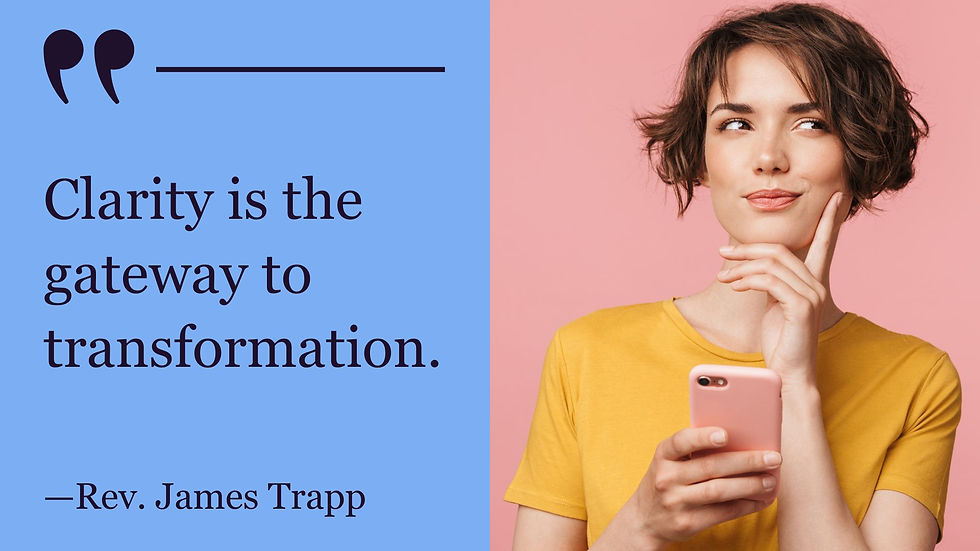
Are You Thinking or Just Reacting?
In a world brimming with noise, where misinformation travels faster than light, the art of critical thinking is more than a skill—it is a spiritual practice. The ability to discern truth from falsehood, clarity from confusion, and wisdom from mere information is essential not only for navigating daily life but also for aligning with our higher purpose. As spiritual beings, we are called to rise above reactionary patterns and cultivate deeper awareness.
The question is: Are you thinking, or are you merely reacting?
The Mind as a Sacred Tool
The ancient wisdom traditions teach us that the mind is both a tool and a servant. However, when left unchecked, it can become a tyrant, leading us into fear, division, and illusion. Spiritual teacher Byron Katie reminds us to ask two foundational questions: "Is it true?" and "Can you absolutely know that it is true?" These questions are not just intellectual exercises; they are invitations to pause, reflect, and commune with the deeper wisdom within us.
Critical thinking, in this sense, is not about skepticism for its own sake. It is about creating space between stimulus and response, allowing divine wisdom to flow through us. It means developing the discipline to question assumptions, dismantle biases, and examine the roots of our beliefs. As the mystics teach, clarity is the gateway to transformation.
Breaking Free from Channel Thinking
Modern society often traps us in what can be called "channel thinking"—rigid thought patterns reinforced by echo chambers and tribal identities. Social media algorithms feed us what we already believe, while fear-based narratives deepen our sense of separation. This mental conditioning blinds us to nuance and prevents us from seeing the divine complexity of life.
To break free, we must practice what spiritual thinkers call "holding paradox." Can you hold seemingly contradictory ideas and see their deeper harmony? Can you acknowledge flaws in those you admire without dismissing their contributions? For example:
You can appreciate the genius of a musician while confronting their personal failings.
You can critique a politician's actions without demonizing their humanity.
You can question cultural norms without rejecting the value they provide.
Holding paradox is not weakness; it is spiritual strength. It reflects the divine dance between shadow and light, yin and yang, order and chaos.
From Reaction to Revelation
Critical thinking is not just about dismantling illusions—it is about uncovering deeper truths. It invites us to move beyond reacting and into the realm of revelation. But this requires courage. It means confronting not only the misinformation "out there" but also the illusions "in here." Are we defending beliefs because they are true, or because they feel safe? Are we rejecting ideas out of discernment, or out of fear?
True critical thinking requires a willingness to be uncomfortable. It demands that we sit with uncertainty and ask, "What else might be true?" This is not the path of intellectual arrogance, but of humility. It is the willingness to say, "I don't know," and trust that the next step will be revealed.
The Spiritual Call to Thoughtful Inquiry
As spiritual seekers, we are tasked with more than personal enlightenment. We are called to be lights in the world, guiding others out of darkness. This begins with our own thinking. When we approach critical thinking as a sacred practice, we align with the divine mind and become vessels for truth and clarity.
In this age of information overload, let us be intentional about the thoughts we entertain. Let us ask better questions, seek higher wisdom, and approach every claim with both skepticism and openness. Critical thinking is not just a mental exercise; it is an act of faith. It trusts that truth exists and that we can find it.
So, the next time you encounter a claim that stirs your emotions, pause. Breathe. Ask, "Is it true? Can I absolutely know that it is true?" In doing so, you may not just uncover facts—you may awaken your soul.
Peace and Blessings,
James

The American Airlines Flight Cancellation and Refund Policy allows passengers to cancel within 24 hours of booking for a full refund. Refundable tickets can be canceled anytime for a full refund, while non-refundable fares receive flight credit. Basic Economy tickets are typically non-refundable unless exceptions apply. Cancellations and refunds can be processed online or through customer service.
What terminal is Spirit Airlines at PHL refers to the specific terminal at Philadelphia International Airport (PHL) where Spirit Airlines operates. The answer to What terminal is Spirit Airlines at PHL is Terminal E. Passengers flying with Spirit Airlines at PHL will check in, go through security, and board their flights from this terminal, which offers a range of amenities for travelers.
The AirAsia Office in Perth serves as a customer support hub for passengers flying with AirAsia to and from Perth, Australia. It provides services such as flight bookings, ticket modifications, baggage inquiries, and travel assistance. The office may also assist with promotional offers, refunds, and general airline-related queries. For exact location, contact details, and office hours, passengers are advised to check AirAsia’s official website or contact customer service.
Delta Airlines departs from Terminal A at Boston Logan International Airport. This terminal is equipped with modern facilities, including check-in counters, self-service kiosks, security checkpoints, and a range of dining and shopping options. Delta Airlines Departure Terminal Boston passengers can easily access their departure gates and enjoy the convenience of various services such as free Wi-Fi and lounge access. Terminal A is well-connected to the airport’s other terminals, ensuring smooth transfers for connecting flights.
Looking for what terminal is Frontier Airlines at DTW? Find all the details at AirlineOfficeDetails. Get terminal information, check-in services, and travel tips for a smooth journey. Visit us for the latest updates on Frontier Airlines at Detroit Metro Airport.